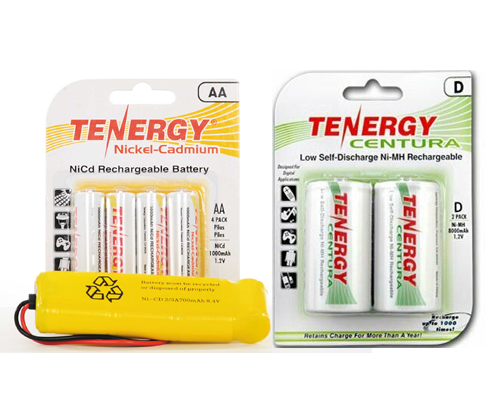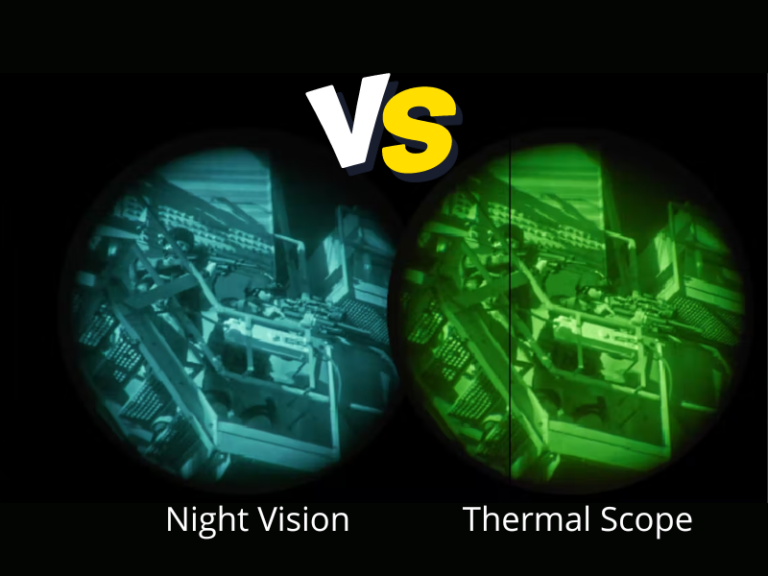What Batteries to Use in Night Vision Scopes?
Night vision scopes typically use one of two types of batteries: disposable or rechargeable. Disposable batteries are designed for single use and are typically less expensive than rechargeable batteries.
However, they can be less environmentally friendly and may not provide the same level of performance as rechargeable batteries. Rechargeable batteries, on the other hand, can be used multiple times and can provide better performance in terms of voltage and capacity. They are typically more expensive and may require additional equipment, such as a charger.
Disposable Vs Rechargeable Batteries for night vision scope
Night vision scopes are an essential tool for hunters, outdoor enthusiasts, and security personnel. These devices allow individuals to see in low-light conditions and identify potential threats in the dark.

However, to power these scopes, users need reliable batteries. When it comes to batteries, there are two main options: disposable and rechargeable.
Disposable Batteries
Disposable batteries are designed for single use and are typically less expensive than rechargeable batteries. These batteries are widely available and come in a variety of chemistries, including alkaline, lithium, and zinc-carbon.
Alkaline batteries are the most commonly used disposable batteries and provide good performance in low-drain applications such as night vision scopes. However, they can leak if left in the device for too long, and their performance can degrade over time.
Lithium batteries are another type of disposable battery that offers better performance in cold temperatures and high-drain applications. They also have a longer shelf life and are less likely to leak than alkaline batteries. However, they are more expensive than alkaline batteries and are not as widely available.
Zinc-carbon batteries are the least expensive type of disposable battery and are commonly used in low-drain applications such as remote controls and flashlights. However, they are not recommended for high-drain applications such as night vision scopes, as they can provide less voltage and capacity than alkaline or lithium batteries.
Pros and Cons of Disposable Batteries
Disposable batteries are available in a variety of chemistries, including alkaline, lithium, and zinc-carbon. Alkaline batteries are the most common type of disposable battery and are widely available.
They are relatively inexpensive and provide good performance in low-drain applications, such as night vision scopes. However, they can leak if left in a device for too long, and their performance can degrade over time.
Lithium batteries, on the other hand, are more expensive than alkaline batteries but offer better performance in cold temperatures and high-drain applications. They also have a longer shelf life than alkaline batteries and are less likely to leak. However, they are not as widely available as alkaline batteries and can be more expensive.
Zinc-carbon batteries are the least expensive type of disposable battery for night vision and are commonly used in low-drain applications, such as flashlights and remote controls.
However, they are not recommended for high-drain applications, such as night vision scopes, as they can provide less voltage and capacity than alkaline or lithium batteries.
Rechargeable Batteries
Rechargeable batteries are available in several chemistries, including nickel-cadmium (NiCd), nickel-metal hydride (NiMH), and lithium-ion (Li-ion). NiCd batteries are the oldest type of rechargeable battery and are less commonly used today. They have a high self-discharge rate and can develop a memory effect if not fully discharged before recharging.
NiMH batteries are a more modern type of rechargeable battery and offer better performance than NiCd batteries. They have a lower self-discharge rate and do not develop a memory effect. However, they can be more expensive than NiCd batteries and may require a special charger.
Li-ion batteries are the most advanced type of rechargeable battery and offer the best performance in terms of capacity and voltage. They have a low self-discharge rate and do not develop a memory effect. However, they can be expensive and may require a specialized charger.
Pros and Cons of Rechargeable Batteries
Rechargeable batteries are available in several chemistries, including nickel-cadmium (NiCd), nickel-metal hydride (NiMH), and lithium-ion (Li-ion). NiCd batteries are the oldest type of rechargeable battery and are less commonly used today. They have a high self-discharge rate and can develop a memory effect if not fully discharged before recharging.
NiMH batteries are a more modern type of rechargeable battery and offer better performance than NiCd batteries. They have a lower self-discharge rate and do not develop a memory effect. However, they can be more expensive than NiCd batteries and may require a special charger.
Li-ion batteries are the most advanced type of rechargeable battery and offer the best performance in terms of capacity and voltage. They have a low self-discharge rate and do not develop a memory effect. However, they can be expensive and may require a specialized charger.
Which Is Better for Night Vision Scopes?
When it comes to choosing the best batteries for night vision scopes, it’s important to consider the pros and cons of each type of battery. Disposable batteries are less expensive and widely available, but they need to be replaced more frequently, which can be inconvenient and more expensive in the long run. On the other hand, rechargeable batteries are more expensive initially, but they can be reused multiple times, which can save money over time.
Rechargeable batteries are also more environmentally friendly than disposable batteries, as they don’t need to be thrown away after a single use. Additionally, rechargeable batteries can provide better performance in terms of voltage and capacity, which can be important for night vision scopes.
Factors to Consider When Choosing Batteries for Night Vision Scopes

When choosing batteries for your night vision scope, there are several factors to consider.
Compatibility
The first factor is the type of battery used by your scope. Some scopes may only be compatible with certain types of batteries, so it’s important to check the manufacturer’s specifications before choosing a battery.
The capacity of the Battery
Another factor to consider is the capacity of the battery. Higher capacity batteries can provide longer run times, but they may also be larger and heavier, which can impact the balance of your night vision scope. It’s important to find a balance between capacity and size that works for your needs.
Battery Voltage
Also, notice the voltage of the battery. Some night vision scopes may require specific voltage levels to operate properly, so it’s important to check the manufacturer’s specifications before buying a battery for night vision.
Temperature Range
The fourth factor to consider is the temperature range of the battery. Some batteries may perform better in cold temperatures, while others may perform better in hot temperatures. If you plan to use your night vision scope in extreme temperatures, it’s important to choose a battery that can perform well in those conditions.
Best Batteries for Night Vision Scopes
Based on the factors discussed above, here are some of the best batteries for night vision scopes:
- Energizer Ultimate Lithium AA batteries – These batteries provide long-lasting performance and are compatible with many night vision scopes. They also perform well in extreme temperatures and have a long shelf life.
- Duracell Quantum AA batteries – These batteries provide high-capacity performance and are compatible with many night vision scopes. They also have a long shelf life and are widely available.
- Tenergy Centura AAA rechargeable batteries – These batteries offer good performance and are rechargeable, which can save you money in the long run. They are compatible with many night vision scopes and have a low self-discharge rate.
- Nitecore NL1835HP 18650 rechargeable battery – This battery offers high-capacity performance and is compatible with many night vision scopes. It also has a high discharge rate and can perform well in extreme temperatures.
Conclusion
When choosing a battery, it’s important to know what batteries to use in night vision scope through its compatibility with your scope. So, by finding a balance between these factors, you can choose the battery that best suits your needs and ensures optimal performance of your night vision scope.

![How Does Night Vision Work? [Ultimate Guide and Generations]](https://guidenightvision.com/wp-content/uploads/2022/08/How-Does-Night-Vision-Work-768x576.png)



